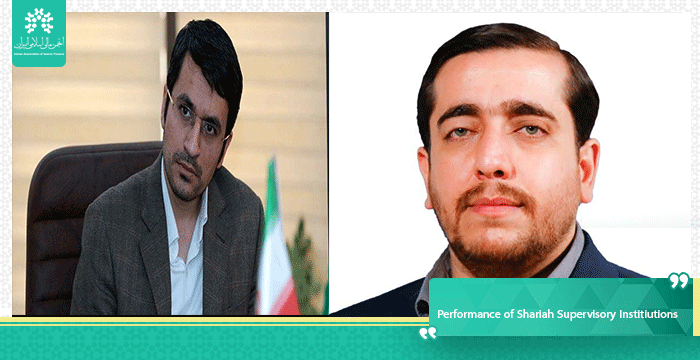
The Iranian Association of Islamic Finance held a specialized session on the performance of shariah supervisory institutions in the money and capital markets.
The Iranian Association of Islamic Finance held a specialized session on the performance of shariah supervisory institutions in the money and capital markets on Monday, 21 December 2022. In that session, Dr. Hossein Maisami and Dr. Majid Pireh gave speeches.
Dr. Hossein Meysami, Secretary of the Shariah Council of Central Bank of Iran
Our discussion is business and international standards of Sharia supervision in the formation of the Shariah Council and the development of a policy for the country's banking system (Iranian banking system). At least in the last one year, Central Bank’s Shariah Council has used the experiences of international Islamic societies. This issue is important because, at first glance, we may think that Islamic banking is only in our country. But when we do a simple search at the international level, we come to the conclusion that Islamic banking has been seriously pursued in Islamic countries since the 1960s and a lot of money has been spent to develop Islamic banking system.
Meysami said another important issue is the standardization of Islamic banking. Whenever we can convert Sharia's resolutions into criteria, standards, checklists and regulatory procedures, that day we can say that Islamic banking in our country or the Islamic capital market has come true, therefore, we can convert resolutions into regulatory standards. He added that the criterion for Islamic banking in countries is Islamic jurisprudence, not issues such as justice and ethics. Of course, it does not mean that we forgot them. But when we set criteria, these criteria should be extracted from fiqh.
The next principle is that at the international level, various models are proposed in the area of the Shariah Council and Sharia supervision. Some countries have named this as shariah council. In some places, it is stated as the shariah committee or the internal supervision committee. Also, some countries have outsourced this issue, but all this means that the internal operations of banks need to be monitored and an Islamic bank or any other institution, if it does not have Shariah supervision, does not have the right to use the Shariah title and is obliged to disclose this matter to its shareholders.
He further pointed out that the next issue is the risk of Sharia. In order to address this issue, Sharia supervision must be defined first. Shariah supervision means all precautionary and supervisory measures in order to ensure the compliance of the activities of a bank or Islamic financial institution with the Shariah law. Therefore, this definition tells us that we should accept Islamic risk as a risk factor.
At the end, Dr. Meysami mentioned the secretariat of the shariah council and the sharia compliance unit in the banks are practically the two executive arms of the shariah council, and if these two arms do not function properly, the shariah council is practically limited only to the resolutions of the meetings.
Dr. Majid Pireh, Secretary of Shariah Committee of the Securities and Exchange Organization
He said the Shariah supervision section in different countries is as follows: 1) Internal and external. For example, if we want to give an Islamic financing sheet, who will say that it is sharia-compliant?
In fact, in developed Islamic capital institutions when a bond is recognized as an Islamic bond, at least 3 certified sharia consultants approve its structure.
2) National-International: some countries believe when they want to issue sukuk at the international level, it must be adapted with AAIOFI standards to finance in what they want. For example, a Qatari company follows that procedure in England.
3. National – inter-institutional and intra-institutional: in stock and capital markets we use both the resolutions and fundamentals of the shariah committee.
Pireh mentioned that when we approve an issue in the committee, we face many challenges in the process of its implementation. In fact, they are key issues.
In the Iranian stock market, the issue of an embedded option on a bond is a key pillar in the issuance process.
He went on to say that one of the most important opportunities for promoting sharia supervision in the stock market is the use of developed capital markets.
The second point is to use the experiences of central bank of Iran. We find Islamic financial experts in the field of capital market and confirm their qualifications. The next issue is culture building in the capital market. The next issue is interaction with academic and seminary scholars.
Furthermore, Secretary of Shariah Committee of the Securities and Exchange Organization said that one of the most important challenges in the field of sharia supervision is regulations. Sometimes we want to launch an instrument but we face a tax restriction in the context of a specific law. Another challenge is the issue of monitoring. Sometimes, the stock exchange organization is under pressure from some factors. Of course, the authority of the stock exchange organization is very good and the organization uses its legal capacity not to give in to these pressures, nevertheless, the issue of putting pressure on some institutions is commonplace.


